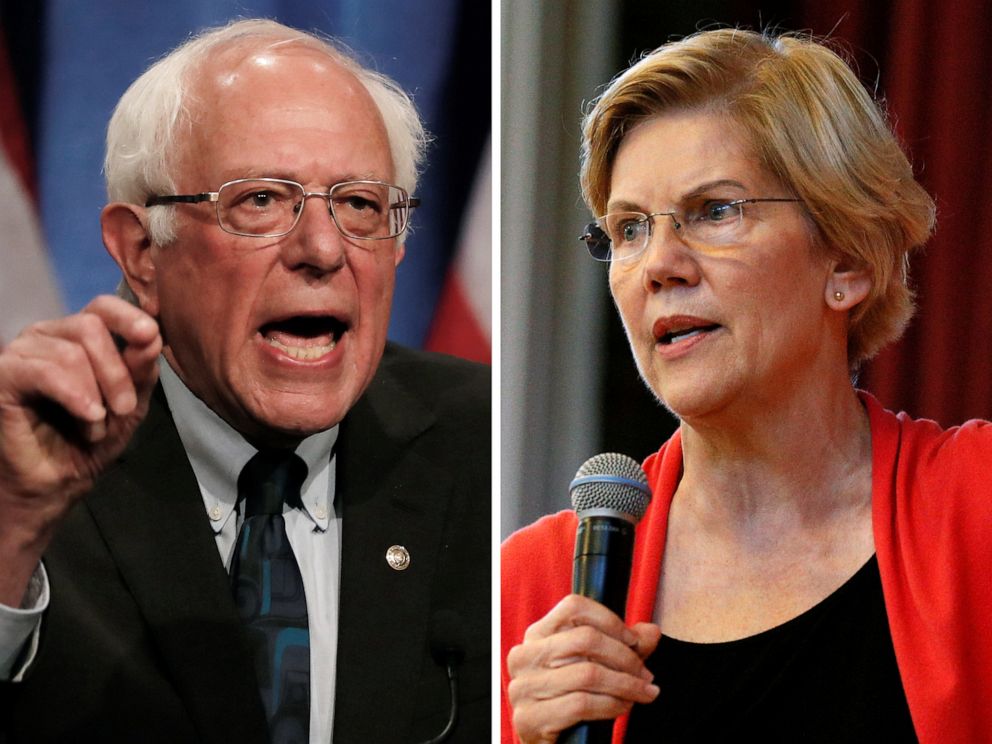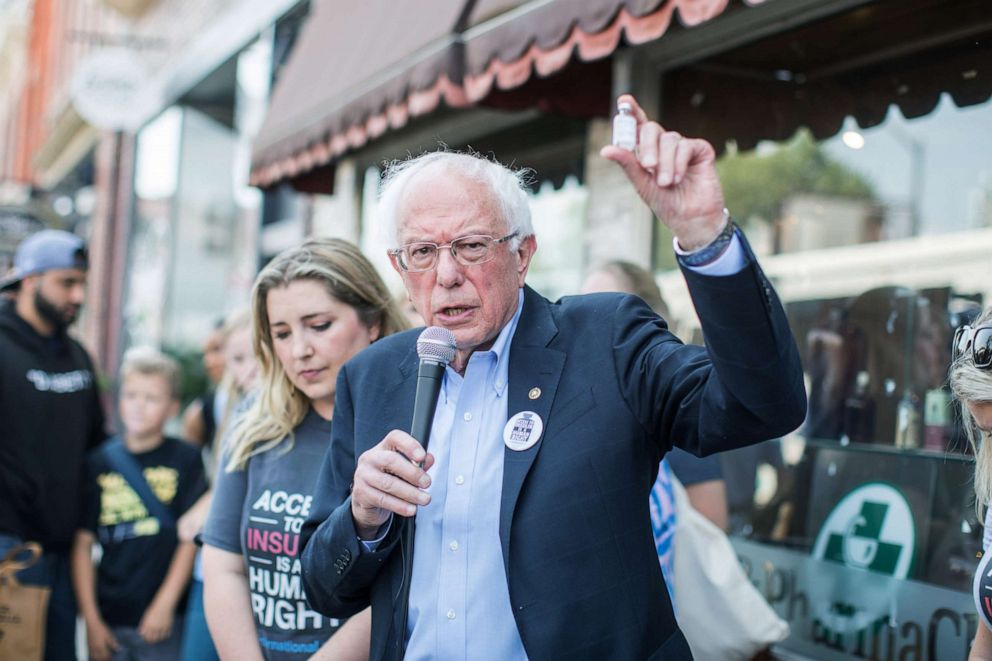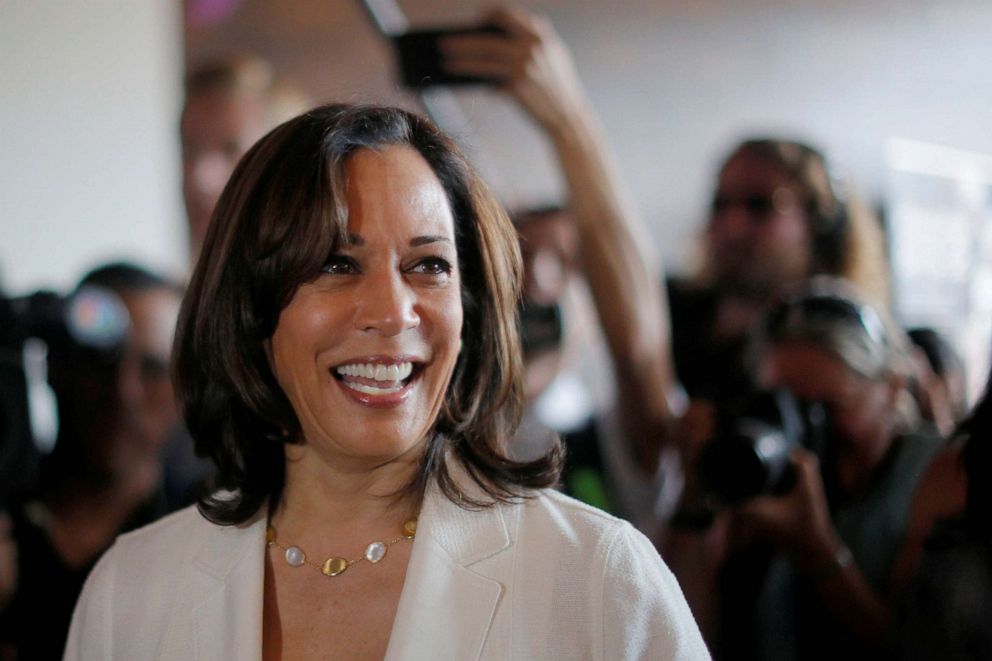The Note: Debate could mark moderates' last stand
What if Sen. Bernie Sanders and Sen. Elizabeth Warren don't want to clash?
The TAKE with Rick Klein
What happens if the titans don't want to clash?
Two progressive powerhouses will be center stage for night one of the second Democratic debate on Tuesday. The party will be watching for Sen. Bernie Sanders and Sen. Elizabeth Warren to mix it up, knowing that they're treading in the same ideological territory.
But the two New England senators are longtime allies who don't actually disagree on very much. The real action in Detroit could come from podiums closer to the wings, where a group of relative moderates -- including several who are unlikely to qualify for future debates, minus a big splash -- stand ready to bring the fight.

If the Michigan backdrop wasn't enough, Tuesday night's lineup offers a virtual tour of challenging places for Democrats to win. Among those joining Sanders and Warren on stage: Indiana's Pete Buttigieg, Minnesota's Amy Klobuchar, Texas' Beto O'Rourke, Montana's Steve Bullock, Ohio's Tim Ryan and Colorado's John Hickenlooper.
A showdown between Sanders and Warren for the progressive mantle may be inevitable. But that doesn't make it immediate, with potential disagreements on display not necessarily among the front-runners, but between them and the rest.
The RUNDOWN with MaryAlice Parks
Does Bernie need a breakout moment?
Of course, relative to several who will share the debate stage with him tomorrow -- who have struggled in the low single digits the polls -- Sen. Bernie Sanders, I-Vt., is sitting just fine.
He has consistently run in the top of tier of the crowded field of 2020 presidential candidates, and his campaign boasts of strong grassroots support.
They say they have over a million individual donors, which is wild, and unlike some of the other leading candidates, almost every one of those donors gave small dollar amounts, meaning they can give again.

Still, campaigns need momentum, and Warren has cannibalized a lot of his. Sanders has stalled or slid in several recent polls.
Plus, his signature single-payer health care plan, back in the limelight, has seen a new round of scrutiny and critique.
On ABC News' "This Week" Sunday, Rahm Emanuel, President Barack Obama's former chief of staff, was highly skeptical Sanders' proposal was a winning strategy for Democrats.
"We're talking about taking away 150 million people's private health care, and the first thing we're going to do is we're going to give undocumented people the health care? How about the 35 million Americans who work, who are one illness away from financial bankruptcy? Talk to them. Focus on them. They're going to vote," he said.
Critics of Sanders point to his broad name recognition and argue a large slice of the Democratic base knows him and are still looking elsewhere. Sanders' team of course says his "political revolution" is still growing.
His supporters love his consistency, but on a debate stage that can look tired and repetitive.
The TIP with Zohreen Shah
For months, presidential candidate Sen. Kamala Harris has struggled with questions about health care. Originally a co-sponsor of Sen. Bernie Sanders' "Medicare-for-All" bill that would eliminate all private insurance, she's teetered back and forth on whether it would stay or go under her plan.
Monday morning, days before she is expected to take the debate stage, Harris unveiled a plan that would allow people to buy into Medicare, or keep their private insurance that would adhere to Medicare's cost and benefits requirements. Her plan is also different from Sanders because it hopes to fund Medicare by taxing Wall Street stocks, bonds, and derivatives instead of the middle class.

It answered a lingering question surrounding her position, but raised fresh attacks. Sanders' campaign manager came out swinging, saying, "This plan is centered around privatizing Medicare, enriching insurance executives and introducing more corporate greed and profiteering into the Medicare system." Biden's team called it "have-it-every-which-way approach" and pointed out "it would not occur on the watch of even a two-term administration."
A Harris campaign spokesperson said it's "important to put out her plan and let these issues get discussed [the] on debate stage. We think it's the best plan to get to 'Medicare for All' -- and experts said so today," appearing to acknowledge that Monday's plan could drive the conversation during one of the most watched weeks.
ONE MORE THING: Former Chicago Mayor Rahm Emanuel, an ABC News contributor, offers his advice to the Democratic candidates ahead of this week's debate. "This time, don't fall into the traps that had many of us shaking our heads during the debates in Miami," Emanuel writes.
THE PLAYLIST
ABC News' "Start Here" podcast. Tuesday morning's episode features Deputy Political Director MaryAlice Parks and former Chicago Mayor and current ABC News contributor Rahm Emanuel. They tell us what to expect from Tuesday's Democratic debate in Detroit. Then ABC News' Patrick Reevell tells us what accusations of political poisoning in Russia has do with lawmakers in the U.S. http://apple.co/2HPocUL
WHAT YOU NEED TO KNOW TODAY
Download the ABC News app and select "The Note" as an item of interest to receive the sharpest political analysis every weekday.
The Note is a daily ABC News feature that highlights the key political moments of the day ahead. Please check back tomorrow for the latest.



